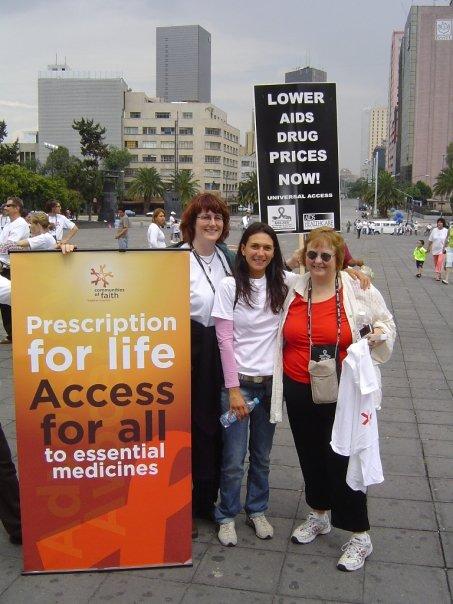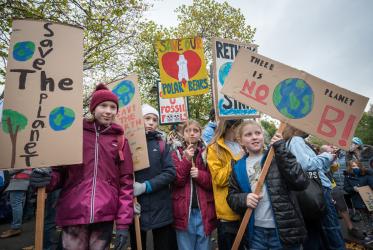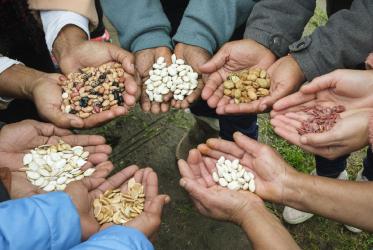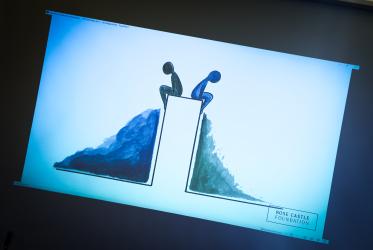Why should people of faith get engaged in AIDS2016?
The first time I took part in the International AIDS Conference was in Mexico in 2008. I was overwhelmed and fascinated. I was impressed by the large number of people HIV could mobilize, and yet I knew many people around the world had no idea of the difference between HIV and AIDS, and even worse, many did not want to know about it.
I was part of the Caritas Internationalis delegation and of the Ecumenical Advocacy Alliance team. My role was to promote the EAA paediatric AIDS action by mobilizing faith-based representatives to highlight the need of children living with HIV to have access to child-friendly antiretroviral therapy. EAA had developed a beautiful and smart postcard campaign directed at a target group of pharmaceutical companies: children living with HIV wish to have candy; they need drugs; but they are not getting anything. That was the time when most of the children living with HIV were given portions of adult ARVs.
At that same conference, the EAA had a booth for the “travel restriction game”. The EAA had developed an awareness game called “Around the World with HIV” to educate and motivate people to campaign to end HIV-related travel restrictions. The game aimed to make people more aware about which countries impose travel restrictions on people living with HIV and the types of restrictions in place. In addition, those who “played” the game were encouraged to take action with their own government and others to end travel restrictions.
Travel restriction game: Faith at AIDS 2008, Mexico (Copyright EAA)
I was proud to be part of such a team and energized by the compassionate and compelling participation of faith leaders and faith based representatives in advocacy on HIV.
Eight years later, I am part of the organizing group for the WCC-EAA Interfaith Pre-Conference and coordinating faith participation in the main conference. I am thrilled by such an opportunity. At the Interfaith Pre-Conference, we are expecting about 300 people from all over the world to participate in plenary sessions, skills building workshops and daily prayer. The aim of the pre-conference is to engage participants in exploring the challenges posed by HIV and AIDS to people of faith, evaluating actions to be taken and planning strategies required to put Faith into Action for Access Equity Rights Now.
I think of AIDS 2016 and plenty of questions come to my mind: Can faith leaders and faith communities do more in response to the AIDS pandemic? Can faith leaders and communities do more to address stigma and discrimination towards people living with HIV? Can they do more to achieve Universal Access to HIV prevention, treatment, care and support? Can they do more to eliminate the root causes to vulnerability to HIV?
I have one answer to all my questions: Yes we can, and we must do more.
The current situation of the AIDS epidemic demands an urgent global response, and faith leaders and communities are critical elements of that response. As people of faith we must act now. If we fail to act now, the disease will come back stronger than ever, new infections will start to rise again, and the AIDS response will lose its unique power to transform global health and save millions of lives. Solutions to HIV and AIDS are not possible without the active engagement of faith communities including in international fora where decision makers meet, advancements in science are announced, and key alliances are created. The International AIDS Conference is the world’s largest open forum on global health. These conferences provide a unique setting for the interaction of science, community and leadership and strengthen an evidence-based policy and programmatic response to HIV and AIDS. We must be at that table. We must talk to each other as faith representatives; and we must engage with other players.
In addition, the Interfaith Pre Conference is an opportunity to be inspired, re-energized, and challenged to expand and strengthen our efforts together to eliminating HIV as a public health threat by 2030.
I strongly believe that more we can speak and act together, the stronger our impact for justice will be.






